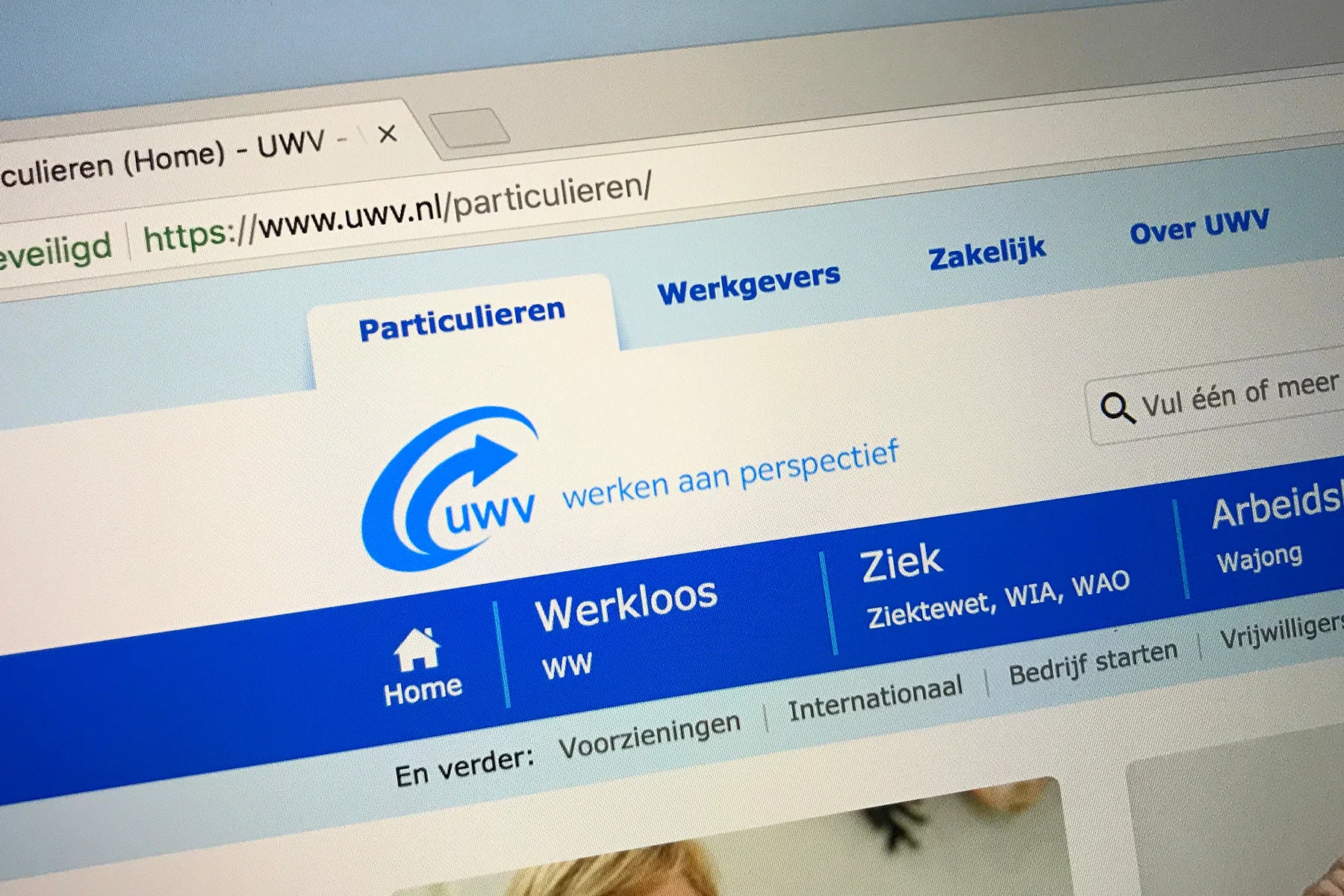The Netherlands has one of the most comprehensive social security systems in Europe, but the eligibility rules can appear complicated at first. If you’re new to the system (or the country!), it could be interesting to take a deeper dive and see how it operates.
Discover what you need to know about Dutch social security by reading the following:
- Social security in the Netherlands
- Receiving social security in the Netherlands
- Unemployment benefit in the Netherlands
- Sickness benefit in the Netherlands
- Maternity benefit in the Netherlands
- Child benefit in the Netherlands
- Survivor benefit in the Netherlands
- Health insurance and long-term care in the Netherlands
- Social security in the Netherlands for self-employed and freelancers
- Useful resources
ONVZ
Looking for expat-friendly insurance in the Netherlands? Try ONVZ, a Dutch health insurance company that provides broad coverage for you and your family so you can start your new Dutch life with peace of mind. Calculate your premium online with just a few clicks. For expert guidance and freedom of choice, choose ONVZ.
Social security in the Netherlands
The Dutch social security system has two strands. The first, national insurance (volksverzekeringen), covers social benefits and is administered by the Social Insurance Bank (Sociale Verzekeringsbank, or SVB). Meanwhile, employee insurance (werknemersverzekeringen) provides benefits relating to work. The Employee Insurance Agency (Uitvoeringsinstituut Werknemersverzekeringen, or UWV) oversees this.
If you’re living and working in the Netherlands as an expat, you’ll need to contribute to the social security system to access certain benefits. These include unemployment payments, maternity and paternity leave, and sick leave. Whether you can access these benefits depends on your income and assets, including any property or savings.

Social security contributions are deducted automatically from your salary. Total contributions are around 27.65% for employees. This consists of 17.9% towards the Dutch pension fund, 9.65% towards the long-term care fund, and 0.1% towards survivor benefits. Contributions vary depending on how much you earn and are capped at €9,808 per year.
To arrange your coverage and claim benefits, you’ll need to register your social security number (Burgerservicenummer or BSN) on DigiD, the Dutch online identification system.
Who has to register for social security in the Netherlands?
The majority of people who live and work in the Netherlands must register for and pay into the Dutch social security system, regardless of their form of employment. A handful of exceptions exist. These include civil servants working at embassies or short-term contractors.
The Netherlands has social security agreements in place with all European Economic Area (EEA) countries, as well as 30 non-EEA countries. These include Australia, New Zealand, Switzerland, and the United States – you can find a full list on the SVB website. Some bilateral agreements allow you to transfer or combine your benefits. The EU’s agreements ensure residents only make social security contributions in one country, allowing them to avoid double taxation. Should you make a claim in the Netherlands, periods of insurance, work, and tax in your home country will be taken into account if required.
If your home country doesn’t have an agreement in place with the Netherlands, you might need to make contributions both there and in the Netherlands.
Receiving social security in the Netherlands
Social security in the Netherlands for EU/EFTA nationals
EU and EEA citizens typically have the same rights as Dutch nationals. There are some restrictions. EU and EEA citizens cannot submit any claims within the first three months of moving to the Netherlands, or before starting work.
In the first five years of residence, claiming social security benefits could theoretically result in the withdrawal of your right to reside in the Netherlands, but this is determined on a case-by-case basis.
Social security in the Netherlands for Non-EU/EFTA nationals
Non-EU nationals who have a Dutch residency permit should have the same rights as other citizens. There are some exceptions, however. For example, in some instances, residence permits include a condition that you can not apply for public funds. Therefore, making a claim could affect your residency. After five years, you can claim benefits with no risk to your residency.
Unemployment benefit in the Netherlands
Who can get unemployment benefit in the Netherlands?
You may be entitled to unemployment benefit under the Unemployment Insurance Act (Werkloosheidswet or WW) if you lose your job in the Netherlands. To qualify, you’ll need to have worked in at least 26 of the 36 weeks before you lost your job. You must also have become unemployed through no fault of your own.
Unemployment benefit is set at 75% of your most recent pay (capped at a maximum of €228.76 per day in 2022) for the first two months of unemployment, then 70% thereafter. If your benefit is less than the Dutch minimum income, you may be able to receive a supplement.

Unemployment benefit theoretically ends after three months, but there is a maximum term depending on the number of years you’ve worked. Each year of employment in the last 10 years entitles you to one further month of benefits, and each year before that provides an extra half month’s worth. The maximum period you can receive unemployment benefit for is 24 months.
If you don’t qualify for unemployment benefit (for example, if you haven’t worked enough or have used up your allowance), you may instead be eligible for social assistance benefit.
How to claim unemployment benefit in the Netherlands
To claim unemployment benefit, you’ll need to apply to the UVW within a week of losing your job. You must also register as a jobseeker and show evidence that you are trying to find employment.
Sickness benefit in the Netherlands
Who can get sickness benefit in the Netherlands?
If you become ill and cannot work, your employer must pay at least 70% of your income for up to two years. People in temporary employment can receive a benefit from the UWV equal to 70% of the average daily pay received before illness, capped at a maximum of €228.76 per day in 2022. Self-employed people may need to take out voluntary sickness insurance to ensure they have cover.
If you have a disability that means you can no longer work, your employer must pay 70% of your income for two years, as above. After two years, you may be eligible for invalidity benefit (WIA-benefit). You can apply for WIA-benefit if you’ve been ill for two years and now earn 65% or less of your previous income due to the illness or disability. Benefit amounts vary depending on whether you’re considered to have a partial or complete incapacity for work. The Dutch system doesn’t differentiate between sickness, industrial accidents, and occupational diseases.
How to claim sickness benefit in the Netherlands
If you fall ill, you’ll need to notify your employer as soon as possible. If you don’t have an employer, you must report your illness to the UMW to apply for sickness benefit.
Maternity benefit in the Netherlands
Who can get maternity benefit in the Netherlands?
Expectant mothers have the right to take pregnancy leave between four and six weeks before their baby is due. Pregnancy leave ends the day after the baby is born.
After the birth date, mothers have the right to a further 10 weeks’ maternity leave. The UWV covers 100% of income during the period of leave, up to a maximum of €228.76 per day. Income received during maternity leave is taxable.
Fathers and partners may have one week of paternity leave, during which they receive a full salary from the employer. This is followed by five weeks at 70% of their wage.
Self-employed people can apply for the Maternity Benefit Scheme for the Self-Employed (Regeling Zelfstandige en Zwanger, ZEZ – website in Dutch). How much you’ll get depends on your income the year before claiming the benefit. The sum received can not exceed the Dutch minimum wage.
Child benefit in the Netherlands
Who can get child benefit in the Netherlands?
There are two main forms of child support in the Netherlands – child benefit (kinderbijslag) and child budget (kindgebonden budget). These are available to people who live, work, and pay tax in the Netherlands.
Child benefit isn’t means tested – it is available to anyone covered by social security who has one or more children under the age of 18 that they care for or support. It’s also available for step-children and, in some cases, foster children. Disabled children or those not living at home because of study or sickness are entitled to double the standard rates.
Quarterly payment amounts vary depending on the age of the child. In 2022, these are as follows:
- 0-5: €230.69
- 6-11: €280.13
- 12-17 €329.56 (16 and 17-year-olds only qualify if they are in full time education or have left education due to illness or disability)

Child budget is a means-tested supplementary benefit. The Dutch finance ministry will analyze your household income and assets to calculate whether you’re eligible for child budget and at what rate. You can use the calculator (in Dutch) on its website to find out more.
If your child attends a care facility, you may also be able to claim childcare benefit (kinderopvangtoeslag). Again, how much you can claim depends on your household income, the hours you work and the price of the childcare facility.
How to claim child benefit in the Netherlands
New parents should receive an invitation from the Social Insurance Bank (Sociale Verzekeringsbank or SVB) to sign up after registering their child. If you don’t receive an invitation, you’ll need to apply via the SVB website.
Survivor benefit in the Netherlands
The death of your partner — married or cohabitating — may entitle you to survivor benefits from the Dutch government. To qualify, your partner must have lived or worked in the Netherlands, and you must meet certain conditions. These benefits may also be available to children aged 21 and younger. Benefits are provided under the National Survivor Benefits Act (ANW).
There are some exceptions to eligibility, such as an existing terminal illness. You can check eligibility for Dutch survivor benefits on the SVB website.
If you were married or had a registered partnership, the SVB will automatically send a letter for survivor benefit, along with an application form. Cohabitating partners must request an application form for survivor benefits with DigiD.
Health insurance and long-term care in the Netherlands
If you live and work in the Netherlands, you’ll need to take out a health insurance plan (Zorgverzekeringswet or ZVW) to cover healthcare costs. This is in addition to the standard coverage provided under the long-term care act (Wet Langdurige Zorg, WLZ).
The WLZ is funded by social security contributions. It supports people with severe, long-term care needs, such as those with disabilities or chronic illness. Anyone settling in the Netherlands must wait a month for every year they’ve been uninsured under the WLZ (up to a maximum of 12 months) before becoming eligible for entitlements. If you move to Netherlands from the EU, EEA, or a country with a bilateral agreement, you can use insurance periods in your home country towards your allowance.
Basic health insurance in the Netherlands only covers a small number of reimbursable treatments and services. The health department’s website regularly updates the latest allowable expenses.
Social security in the Netherlands for self-employed and freelancers
Self-employed people and freelancers in the Netherlands don’t need to take out compulsory insurance against illness, invalidity, or unemployment. If you’re looking for these forms of protection, you’ll need to take out private insurance yourself.
However, self-employed workers must make social security contributions towards national insurance, which covers pensions, long-term care, and child benefit. These contributions are made as part of your income tax return. Self-employed workers must also have healthcare insurance by law.
The Dutch government’s website provides more information on the benefits available to self-employed people in the Netherlands.









